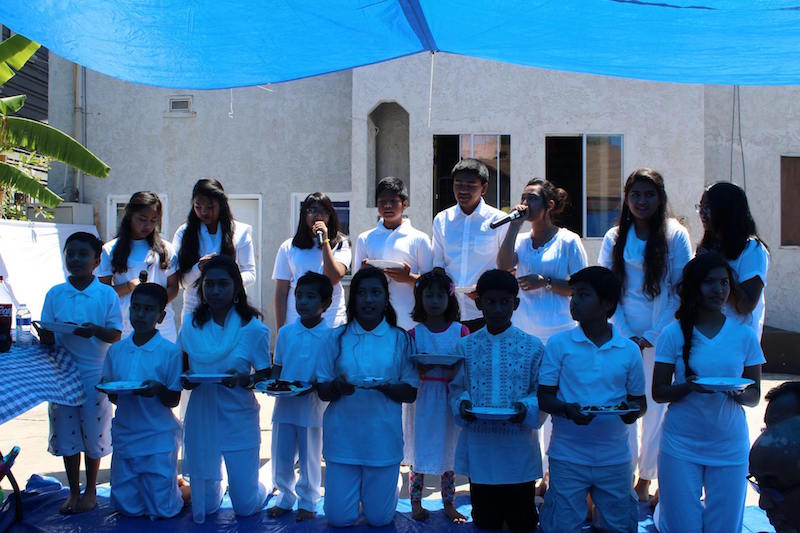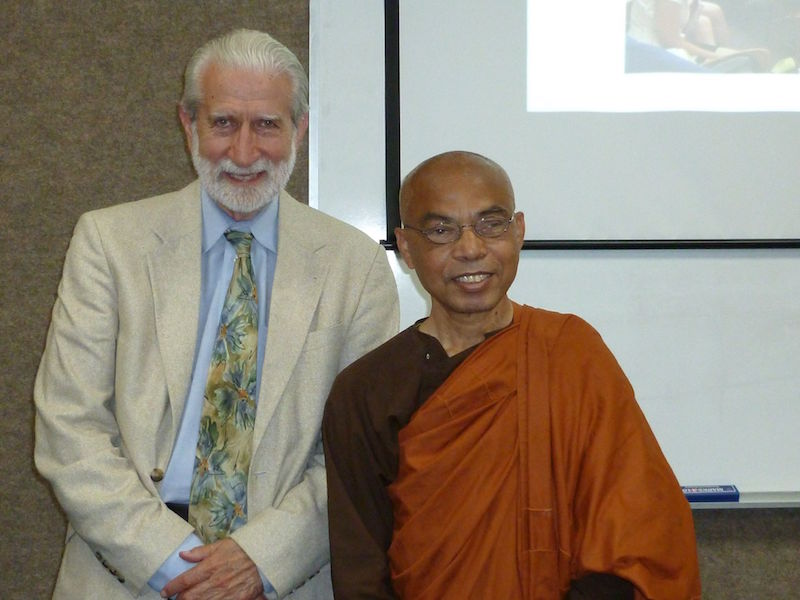
In June this year, I was invited to present a paper to the 10th International Conference on Conflict Education at the Ohio State University in Ohio, USA. En route to my destination, I made a stop to call on the Bengali Buddhist community at Long Beach in Los Angeles, California.
This was on the recommendation of the Founder of the Bangladesh-American Buddhist Fellowship and head of the Buddhist Temple of Sambodhi Vihara in California.
I stayed three days and had an informative and enjoyable visit.
On the first day, I gave a talk to children who are students at the Sunday Dhamma School. Normally, Sunday School is of course held on Sundays! But on this pleasant Saturday, I entered to find to my delight a large number of children and youth chanting devotedly in the shrine chamber of the temple.
Parents enrolled their children in the Dhamma class so they could learn about profound doctrines from a systematic curriculum and, having acquired an accurate understanding of these doctrines, to be able to communicate with ease about these complex ideas in simple and clear expressions.
The key objective that these parents sought after is to infuse in their children core Buddhist values and moral concepts at an early age when they are more receptive to good influences—growing up in the midst of American culture which are perhaps sometimes at odds with virtuous ideals of filial piety and self restraint against mass consumerism.
The Sunday School also provides a meeting point for like minded young people to give each other peer support and self confidence. Obviously Bengali culture plays a significant part in the activities and events being organized and staged.
The Sunday School has been active since 2000 but the temple buildings were established only in February 2016.

The Founder of the Fellowship and head of the temple Ven. Lokananda is one of the earliest Bengali immigrants to California. He completed his education in Sri Lanka and moved to the States in the early Eighties. The temple had a humble start in the inconspicuous home of a devotee, and has since grown to be a flourishing place of worship and spiritual sanctuary for all Bengali Americans in California!
This community of Bengali Buddhists hail their origins from Chittagong in Bangladesh and count amongst their clansmen surnames of Barua, Chaudhary, Mutsuddy, Sinha, Talukdar. They follow Theravada Buddhism.
Another temple I was also able to visit is called California Bodhisattva Vihara, also located at Long Beach. There counseling, meditation and yoga classes are also on offer to followers.
I was immensely moved by the tremendous attempts to protect, nurture and grow the religious, intellectual and cultural traditions amongst Bengali Buddhists living in this part of the United States.
I am very mindful that I have been given a valuable opportunity to be informed about and to be in contact with wonderful Buddhists, and do wish to communicate through this space—like the wafting of sweet fragrance through a Buddhist door and passage—their human stories that bear witness to efforts being expended for our Buddhist ideals.

I thought the idea that filial piety was part of Buddhism emerged when the Mahayana went to China. I’m surprised to hear it referenced in regard to Theravada. What am I missing?
Hi Yudron Wangmo, while filial piety has its strongest emphases and pronouncements in Confucianism (and quickly finds its way into Chinese Buddhism), respect for parents and authority figures are common in Mahayana sutras that were already composed in India. For example, patricide and matricide are outlined as one of the five grave offences, while the Pure Land sutras, which were transmitted from India, mention several times the importance of respect for parents.